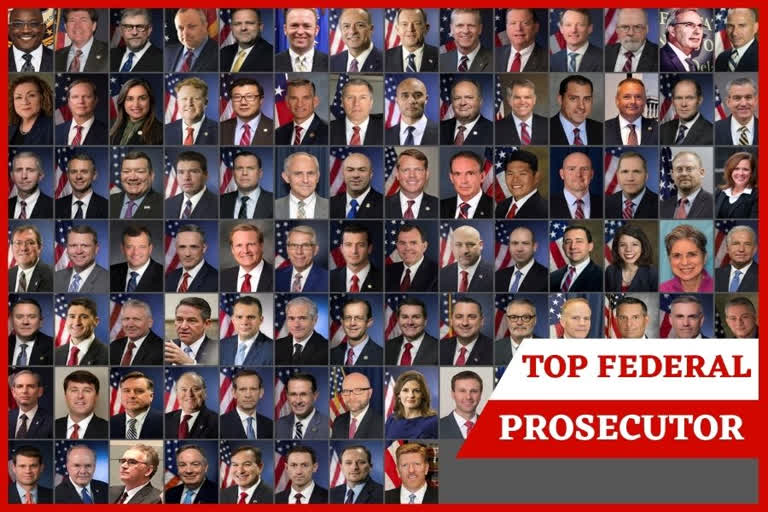Washington: The nation’s top federal prosecutors have become less diverse under President Donald Trump than under his three predecessors, leaving white men overwhelmingly in charge at a time of national demonstrations over racial inequality and the fairness of the criminal justice system.
The Associated Press analyzed government data from nearly three decades and found that a persistent lack of diversity in the ranks of US attorneys has reached a nadir in the Trump administration. Eighty-five per cent of his Senate-confirmed US attorneys are white men, according to AP’s analysis, compared with 58 per cent in Democratic President Barack Obama’s eight years, 73 per cent during Republican George W Bush’s two terms and at most 63 per cent under Democrat Bill Clinton.
White men lead 79 of the 93 US attorney’s offices in a country where they make up less than a third of the population. Nine current US attorneys are women. Two are Black and two Hispanic.
Federal prosecutors can have a profound effect on the criminal justice system and leadership holds an immense sway. Without a diverse group considering cases, bias can seep unnoticed into charging decisions and sentencing recommendations, undermine leadership and chip away at the perceived legitimacy of the justice system.
The enduring imbalance leaves US attorneys looking less like the people they serve and is in stark contrast to the population of federal prisons, where a disproportionate share of those incarcerated are Black.
“The department, as a whole, is simply not valuing diversity at its highest ranks of leadership and not making the most well-informed decisions when those voices are absent from the decision-making process,” said Kenneth Polite Jr, who served as US attorney in New Orleans during Obama’s second term.
The gap is especially relevant in an era when state and local law enforcement are repeatedly being taken to task over decisions not to prosecute police in the killings of Black people. US prosecutors can serve as a backstop in those scenarios by bringing federal charges.
Read more:Don't want to attack Trump now: Biden
The Trump administration’s inability to hire top prosecutors who reflect the nation has also deepened mistrust in communities frustrated by the Justice Department’s shift away from investigating police practices and Attorney General William Barr’s dismissal of the idea of systemic racism in law enforcement.
White House spokesman Judd Deere said in a statement the administration has “worked closely with US Senators to identify the best candidates to serve as the chief law enforcement officer in their districts back home."
Former prosecutors say bias can skew prosecutorial decisions where there isn’t a varied group considering cases. It’s something Danny Williams Sr. saw a year after he became a US attorney in Oklahoma in 2012.
Tulsa police had arrested two groups, one white and the other Black, in similar armed robberies. Williams said he was surprised the proposed charges that reached his desk were different: The Black defendants faced more potential prison time.
Williams, who is Black, asked the assistant US attorney who’d handled the cases what factual difference accounted for the disparity. The career prosecutor, who is white, responded that the white defendants were college students, Williams said.
“I just think that he didn’t grasp, in the charging decision, the way he treated these two different groups differently,” Williams said, adding the same charges ultimately were brought in both cases.
To be sure, the way bias plays out is complex and there is not a direct relationship between a prosecutor’s race or sex and the decisions he or she makes.
